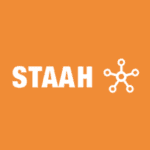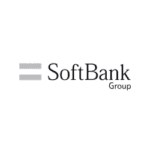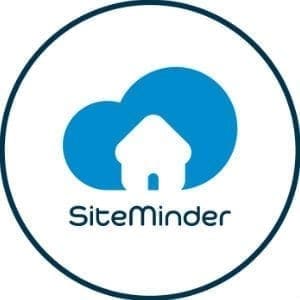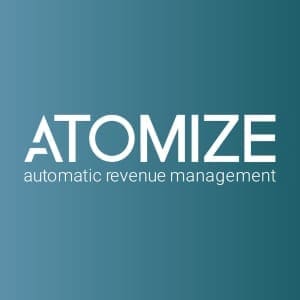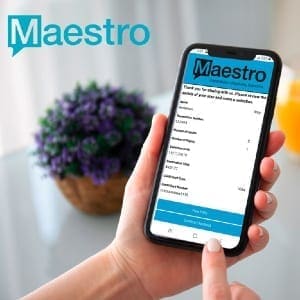 2021 is a year of disruption. Not only has the hotel business come to a screeching halt in many markets, but travelers are modifying their list of must-haves if operators want them to return, and touchless experiences — such as contactless payments, mobile check-in/out, mobile reservations, mobile keys, and hotel-to-guest text messaging — are topping their list of demands. Maestro, the preferred cloud and on-premises property-management system solution provider for independent hotels, luxury resorts, conference centers, vacation rentals, and multi-property groups, is making it easier for hoteliers to evaluate their current system features and the vendor services needed to reopen successfully in the days/week/months ahead.
2021 is a year of disruption. Not only has the hotel business come to a screeching halt in many markets, but travelers are modifying their list of must-haves if operators want them to return, and touchless experiences — such as contactless payments, mobile check-in/out, mobile reservations, mobile keys, and hotel-to-guest text messaging — are topping their list of demands. Maestro, the preferred cloud and on-premises property-management system solution provider for independent hotels, luxury resorts, conference centers, vacation rentals, and multi-property groups, is making it easier for hoteliers to evaluate their current system features and the vendor services needed to reopen successfully in the days/week/months ahead.
“The line between technologies that are ‘nice to have’ and those that operators ‘must have’ is vanishing as the Coronavirus lingers on and consumers are getting anxious to travel again,” said Warren Dehan, Maestro President. “People are tired of being confined. They want to get out of the house or office . . . explore new places, site-see, people watch . . . just be anywhere other than where they have been for the last eight to 12 months. Research shows that consumers are willing to travel in 2021. The deciding factors in which hotel they choose comes down to cleanliness, contactlessness, and the ability to digitally communicate with their chosen hotel via mobile device while still receiving a personalized experience.”
A 2020 industry study asked travelers: “What are the most important factors in selecting a specific hotel?” Seventy-six percent of those surveyed cited “confirmation of the date and time that a guest’s room was last cleaned” as a top priority, and 72% said “the hotel has extended the time period between guest stays in a specific room” were most important. Undeniably, there is a direct correlation between what tomorrow’s travelers want and the functionality that PMSs must offer to meet guest demands. According to the study:
- 63% of travelers said it’s important to them that the hotel text them pre-stay information
- 64% said they are willing to use self-service technology to reduce wait times
- 59% said they want the ability to make contactless payments
- 57% want to check-in/out via their personal mobile device
- 54% expect to make reservations from their mobile device and use those devices as mobile keys
- 53% want the ability to check-in/out via kiosk
- 50% expect the hotel to provide personalized service based on their purchase history
- 49% prefer to use contactless/touchless technology at hotels and restaurants
“If you’ve been told migrating to a cloud-based PMS is all you need to weather today’s economic storm — don’t be fooled,” Dehan said. “The platform your PMS operates on (whether the server is in the cloud, in a private cloud, a managed data center, or in the hotel’s IT room) is not nearly as important as whether or not the system can meet your specific operational needs. The added support of a flexible and scalable web-browser-based PMS with robust features, contact free, mobile and choice of 100s of third-party technologies through an open API will accompany a successful implementation. More than ever, property groups need a solution provider that gives them the power to choose key aspects of their operational technology needs, rather than having them work within the confines of a provider’s limitations.”
Travelers have spoken. As much as they want a contactless experience, operators still need to maintain a high touch environment as they deliver the stay experience that guests are accustomed to and expect. For instance, guests want to know not just when the room was cleaned last, but when was the last time someone occupied the room and slept in their bed. Today’s PMSs must have the functionality to convey that information and so much more if the hotel is going to capture market share.
“Maestro, for example, has programmed its Housekeeping Module to create gaps in room rental spacing to allow time for complete room sanitization,” Dehan noted. “It also has mobile texting capability and room status updates so details about room cleanliness and sanitization can be shared with guests even before they arrive on premises. Our Maestro Front Office system also offers a ‘wear and tear’ room rotation option that can be programmed to sell rooms that have been vacant the longest first. This type of functionality is not common in all systems; it is a feature based on user demands and continuous system updates over time. Operators must do a deep evaluation of their current systems to see if they are really ready for reopening.”
Hotel Technology Experts Speak to PMS
Identified by Lodging magazine as one of the top 10 hospitality technology experts changing the travel industry, John Burns, president of Hospitality Technology Consulting, said the pandemic has impacted every aspect of the hotel operation. Guests are now primarily from the “Local/Leisure” market category, and the interest of these guests extends well beyond just a comfortable, secure bed for the night.
“Today’s guests seek a welcoming room, but they also want a combination of services, activities and experiences to be enjoyed on-property and nearby to the hotel,” Burns said. “They want plentiful information on these services, and they want to be able to easily reserve them online and enjoy them with an array of pandemic-related safeguards in place. Fulfilling these expectations requires creativity, planning, and a willingness to implement new processes. It also requires technology to support the promotion and delivery of these ‘beyond-the-guestroom’ services. This technology includes the hotel/brand website and booking engine which must be appealingly present (and enable reservations). It must answer many more questions to describe and promote the property . . . provide an arrival-to-checkout contactless environment . . . offer extensive pre-arrival and on-property hotel/guest communications . . . and structure, enable delivery, and charge for not only the accommodation but also the full array on ancillary service enjoyed by the guest.
“The heart of this technology suite is the property-management system,” he said. “Interfacing when necessary with peripheral technology, the PMS enables development, presentation, and delivery of the 2021 guest/property interaction. Not all PMSs have the needed capabilities to support this more complex workflow, resulting in the need by some hotels to either move up to a current generation PMS or relegate their hotel to a less-than-competitive position in the lodging marketplace.”
Ted Horner, managing director of E Horner & Associates, a hospitality technology consulting practice specializing in hotel systems selection, deployment, and integration, said as the uncertainty of COVID-19 continues and a cure is still some way off, it is imperative that PMS vendors provide hotels with as many modules and touchless tools that reduce or eliminate physical contact.
“Web check-in, check-out on your mobile phone, and electronic signature capture eliminates several unnecessary points of contact,” Horner said. “Many properties both large and small are now offering mobile-key guestroom access via an app on their phone that is fully integrated with their PMS. Now that this technology is proven, hotels should actively encourage guests to use it.”
Diane Estner, president of DANNI Enterprises, a hotel technology group specializing in hotel systems selection/deployment/integration, technology architecture, organization, and strategy, said she is convinced that 2021 is a good time to really scrutinize existing hotel technology in place, however, it may or may not be centered around changing the PMS.
“There are a number of legacy PMS systems that can accommodate the evolving contactless tools and mobile engagement, as there are a number of solid reliable companies, as well as new innovators, that have brought their solutions to market,” Estner said. “System integration and partner collaboration is what is needed most. Low occupancy, significantly reduced revenues, and operational pressures can feel catastrophic if a hotelier is dependent upon an older, inflexible PMS platform or PMS partner. The challenges we are experiencing today are best endured and supported thru a strong partner relationship that offers innovation and flexibility — and not all PMS companies are created equal, as we know.
“Hoteliers today must do their due diligence and find the features and flexibility they need to thrive, not just survive,” she said. “They must negotiate and be open to changing the model for their business, their operations, and where they draw their revenues from.”
PMS Evaluation Checklist Available from Maestro
To help hoteliers with the due-diligence process, Maestro is offering hoteliers a FREE PMS Evaluation Checklist to help them quickly determine how their system compares to others in the market. Operators can quickly compare general benefits and system features and functionality at a glance.
A few features for comparison on the PMS Evaluation Checklist include:
- Flexible installation of either windows or web browser based (or combination) at the property on premise server, cloud hosted or in a private cloud.
- Touchless and mobile tools for guests and staff, pre-arrival through to check out.
- Text enabled communication to in-house guests to monetize and up sell services.
- Soft check-in with automatic communication to housekeeping mobile app, automatic notification to guest once housekeepers change room status to notify them of room ready.
- Housekeeping “service levels” by property and room type based on guest type.
- All modules centralized on a single database to facilitate full property automation for leaner staff teams.
- Mobile spa provider apps for real-time schedules, mobile spa/activity waiver forms with electronic signature capture.
- 24/7 Support and live phone and chat by a central single team.
- All upgrades and new version updates free of charge.
To access the Maestro PMS Evaluation Checklist, click here.
“With more and more functionality being demanded by travelers today to ensure themselves a safe stay, we believe that 2021 should be deemed the ‘Year of PMS,’” Dehan said. “The hotel industry is not just facing a health crisis; it’s facing a confidence crisis. The more that we as technology developers can do to fortify our solutions to meet traveler demands, the faster we can all recover. Most demands hinge on the flexibility and functionality of the PMS. Those hoteliers who are still operating with an underperforming system need to make some changes if they want to do more than just survive this year. Maestro is here to help.”















